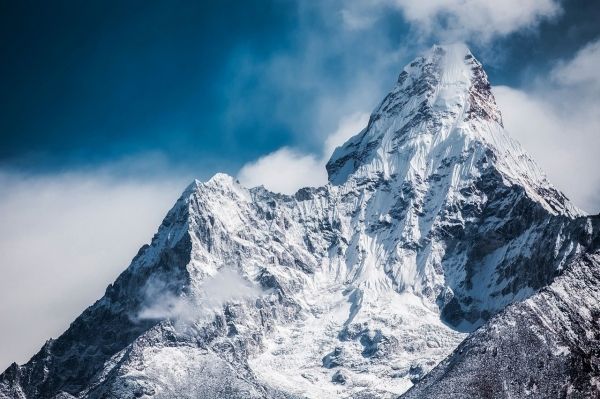Dust blowing onto high mountains in the western Himalayas is a bigger factor than previously thought in hastening the melting of snow there, researchers show in a study published Oct. 5 in Nature Climate Change.
That’s because dust— lots of it in the Himalayas— absorbs sunlight, heating the snow that surrounds it.
“It turns out that dust blowing hundreds of miles from parts of Africa and Asia and landing at very high elevations has a broad impact on the snow cycle in a region that is home to one of the largest masses of snow and ice on Earth,” said Yun Qian, atmospheric scientist at the U.S. Department of Energy’s Pacific Northwest National Laboratory.
Qian and Chandan Sarangi, formerly a postdoctoral associate at PNNL and now at the Indian Institute of Technology Madras in India, are corresponding authors of the study.
Read more at DOE/Pacific Northwest National Laboratory
Photo Credit: 12019 via Pixabay


